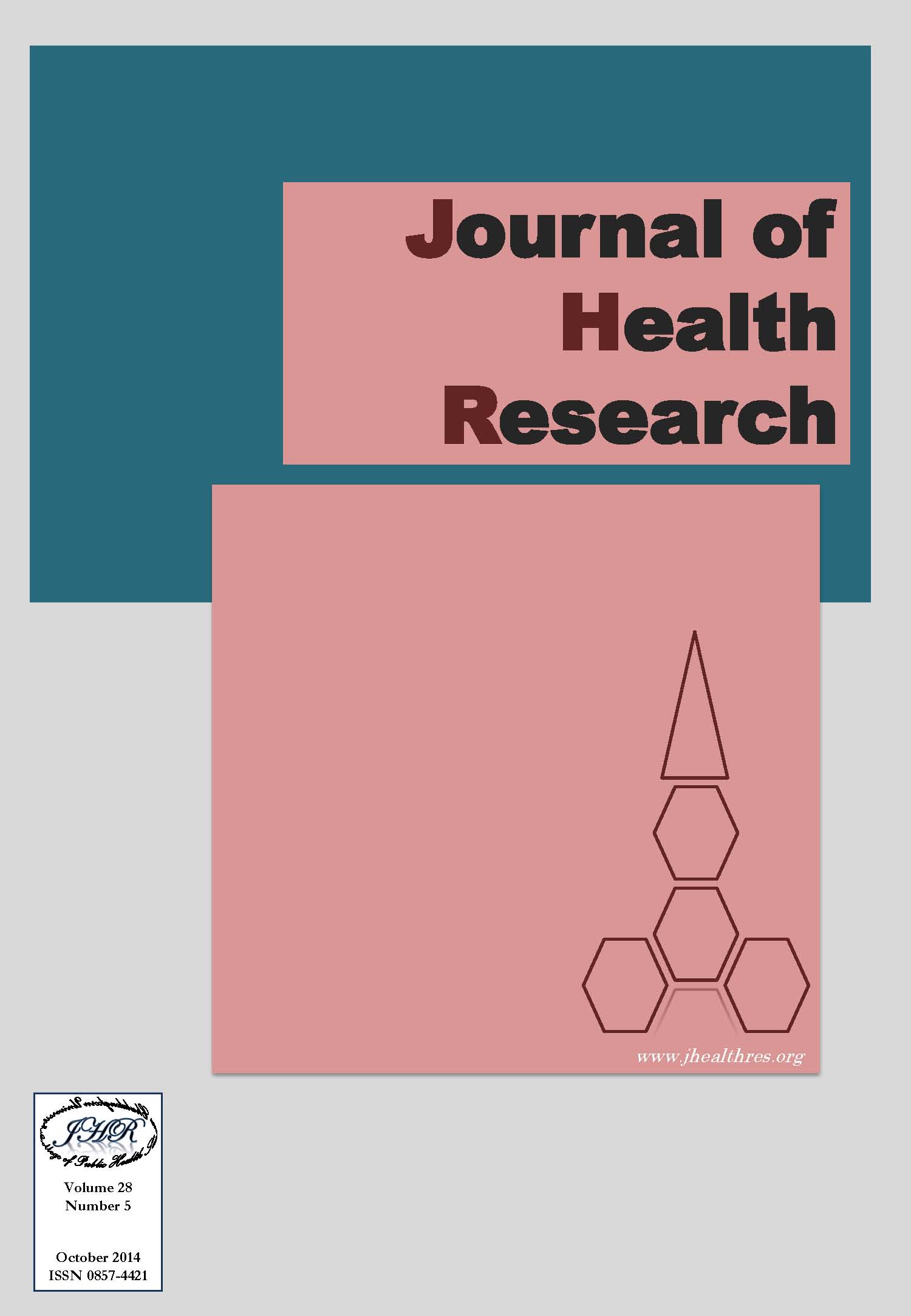Needs Assessment on Sexuality and Reproductive Health Education of Secondary School Students in Yala Province, Thailand
Keywords:
Needs assessment, Sexuality health, Reproductive health, Adolescent health, Met need, Felt needsAbstract
Sexuality and reproductive health are important knowledge providing in adolescents to develop their life skills. Yala province in the southernmost of Thailand where there are many problems on learning system because of the Southern political unrest. This cross-sectional study aimed to determine socio-demographics, risk behaviors acceptance, attitudes toward premarital sex, and felt needs on sexuality and reproductive health education in 393 secondary school students in Yala province. A self-administered questionnaires was distributed to all participating students. Chi-square and Fisher’s exact were used to analyze data. Participants were predominately female (60.8%), with average age 17.3 years old. About 65% of them were Buddhists and mostly studied in Grade 12 (36.6%). Most students stayed in their home as a current residence (74.6%) and mostly with their father/mother (69.2%). Students were more likely to have discussed about sexual and reproductive health with their friends (81.9%). They accepted risk behaviors in moderate level (64.1%). Most students had attitudes toward premarital sex in neutral level (71.2%). Age, risk behaviors acceptance and attitudes toward premarital sex were significantly associated with their felt needs on reproductive health education (p-value < 0.05). Age, religion and risk behaviors acceptance were significantly associated with their felt needs on sexuality health education (p-value < 0.05). Learning programs should be considered to provide students with awareness of risk and negative health outcomes. A qualitative study should be implemented in further research.







